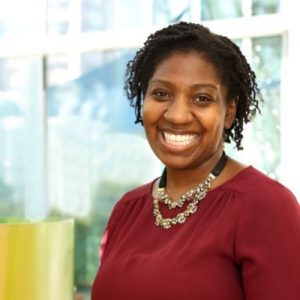Takeaway
After lying to my own doctor because I feared her judgment, I learned to invite all patients to be open and honest. Earning the patient’s trust will allow us to give the best care.

Connecting with patients | January 4, 2022 | 2 min read
By Rebekah Fenton, MD, Northwestern University
I’m sitting across from an adolescent patient in a clinic exam room. After explaining the rules of disclosure, I chug along the SSHADESS or HEEADSSS questions and ask, “What percent of the time are you using condoms with partners?” and “Have you ever drank alcohol? Smoked, including vaping?” There’s silence, especially if they’ve never disclosed to a doctor before. They look at me anxiously, wondering what to say next.
Another time, I’m talking to another adolescent and their parents. I ask about medication adherence, dietary habits, and exercise routines. The teen’s eyes weigh the truth with what they think the adults will want to hear. I imagine they’re thinking, “Do I tell the truth and feel shame and embarrassment? Or do I lie?”
I know this because I’ve been on the other side. In residency, I made a routine appointment with a new gynecologist for a pap smear. The intake paperwork asked about health history and habits. My gynecologist flipped through the pages to confirm the provided information. “I see you’re working out three times a week? That’s great!” “I am?” I laughed off the nervousness of being caught in a lie. “That’s actually my goal. I’m still working towards it.” She nodded in understanding and moved on.
Remembering that moment, I often interrupt my patients’ thought process before they decide what answer to share. “Imagine I have a bright neon light above my head that says, ‘no-judgment zone.’” The tension in their face starts to ease as I continue, “I’m not here to make you feel bad about your answers. Nobody cares for themselves perfectly, including me. I’m only asking to see how I can help. The best starting place is being honest with where you are so we can talk openly about what gets in the way and how we can work through it.”
My patient-doctor communication classes in med school had no language for this dynamic. I was just taught to ask questions, collect information, and assess in a binary fashion: “compliant” or “non-compliant,” “risk taking” or “not risk taking.” Motivational interviewing, thankfully, takes this a step further. It prompts a conversation about barriers, readiness, and action steps. Yet, both fall short of acknowledging our own fallibility and humanity as clinicians. Med school professors recommended against self-disclosure with patients and told us it was unprofessional and would weaken our credibility. Yet, seeing patients struggle with habit formation like I do, taught me to extend greater grace. So I declare a no-judgment zone, acknowledge how hard it is care for our bodies against the odds of busy schedules, limited community resources, and/or external stressors from finances to racism. Sometimes, I even laugh with patients about the day I lied on my doctor’s form so they can better understand that we are all still figuring it out.
This piece expresses the views solely of the author. It does not necessarily represent the views of any organization, including Johns Hopkins Medicine.

